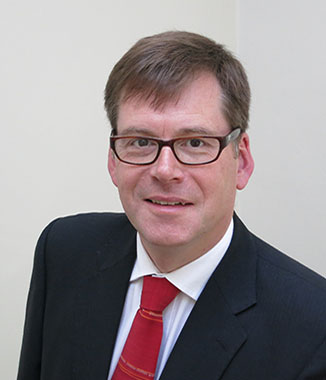Tuesday 10 March
By Rev Grant Barclay, St Kentigerns, Kilmarnock and ConvenerCouncil of assembly
My local hospital, built about forty years ago, looks pretty modern but in that period the area's maternity services have developed three times. A local, low-tech maternity home was relocated in a county-wide independent unit which was itself replaced by a state-of-the-art facility right next to the hospital's operating areas and laboratories. I still, occasionally, visit new mums and their babies and see a bewildering collection of complex equipment - only the tip of a huge iceberg of specialist medical provision. Children and their mothers are given the most up to date treatments and care by expert staff. Most of the time I hardly give it another thought.
 Rev Dr Grant Barclay
Rev Dr Grant Barclay
Jeremiah's words echoed in Matthew's Gospel accompany one of the most chilling narratives in the New Testament: Herod's command to slaughter the infant boys after the Magi's visit. What, though, if there wasn't wailing, but silence? What if you couldn't hear Rachel mourning, because she was no more? Would they mourn her loss as they did the death of sons? And if she died, who would care for other children, bring up the next generation, look after elderly relatives or hold a community together?
Pregnancy is a potentially serious condition faced only by women. The fathers, husbands and other men who are not mentioned by Matthew may have looked on, helpless. It is now clearly possible to address some of the life-threatening issues surrounding pregnancy and childbirth. Three iterations of maternity provision in my area in a generation demonstrate that. The same, though, can't be said globally.
 Christian Aid
Christian Aid
Daily Reflection
In 2013, almost 300,000 women died globally from causes related to pregnancy and childbirth.
Give 50p for each woman you know who has received specialist care during or after her pregnancy.